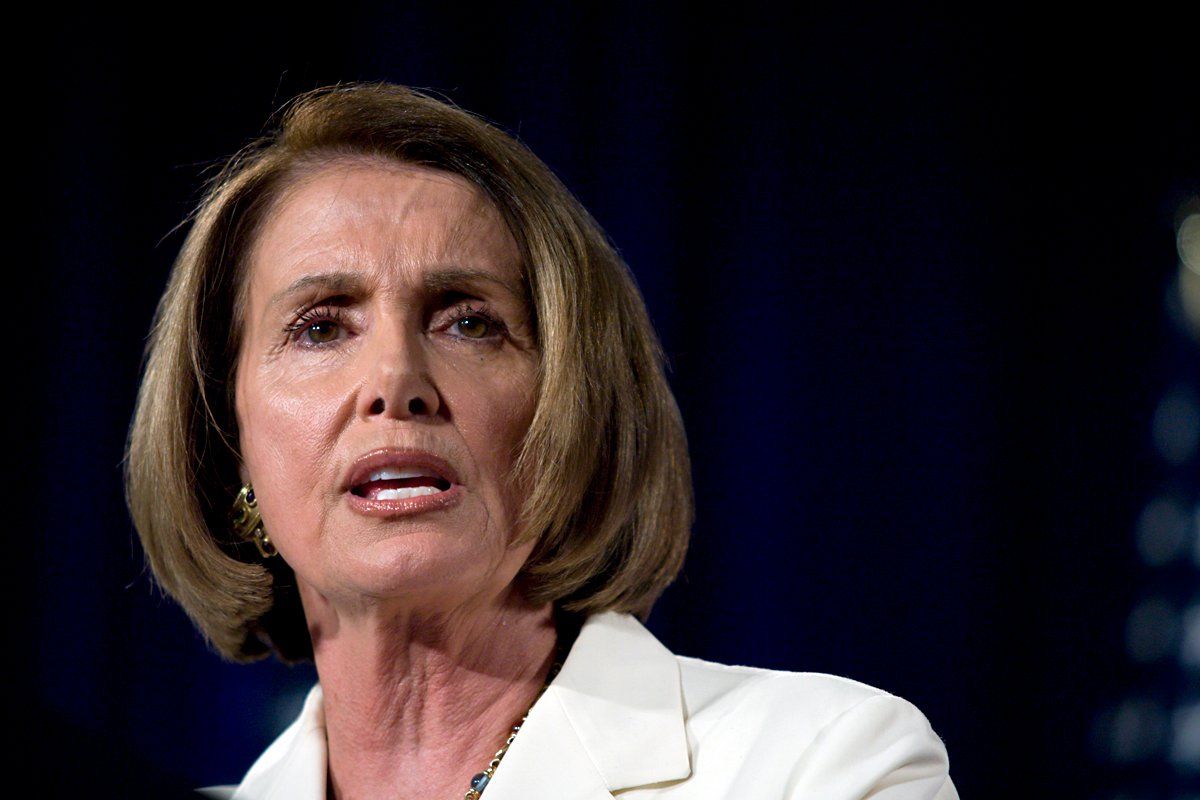
For Republicans, the prospect of Nancy Pelosi remaining as leader of House Democrats is the gift that keeps on giving. Upon learning of Pelosi's intention to run for Democratic minority leader, gleeful staffers at the Republican National Committee switched the "Fire Pelosi" banner outside their Capitol Hill headquarters with a huge red banner declaring "Hire Pelosi." Thanks to the liberal bent of the Democrats who survived the midterm shellacking, Pelosi is the odds-on favorite to lead her party to what she hopes will be a comeback in two years.
"She thinks she's Sam Rayburn," a Democratic strategist told me. But this is a different era, and the likelihood that she can win back the majority in two years the way Rayburn did not once, but twice, is a pipe dream, the strategist added. Rayburn managed Democratic comebacks after Republicans briefly controlled the House in 1947–48 and again in 1953–54. Unlike Pelosi, who is seen as the champion of the party's liberal wing, Rayburn resisted attempts to present his views as more narrow than they were, declaring, "I always say without prefix, without suffix, and without apology that I am a Democrat."
Pelosi is polarizing where Rayburn wasn't, making her a nice fat target for Republicans at a time when Democrats are counting on Tea Party excesses to make the GOP look like they're the ones who are overreaching and out of touch with the voters. The White House is mum on whom President Obama might prefer to have lead the party in the House, knowing that any expression, however guarded, of who might be best could trigger an explosive fight among Democrats. Pelosi supporters are already angry at White House Press Secretary Robert Gibbs for punting and saying it's up to House Democrats to decide on their leader.
The truth is that except for the most diehard Pelosi backers, Democrats are ambivalent about whether she should step aside or stay. On one side, there's an argument that if a majority leader oversees the loss of 64 seats, it's time to go. At the same time, Pelosi is the victim of her own success. She skillfully maneuvered through the House major pieces of Obama's legislative agenda, and if it hadn't been for her determination to persevere on health-care reform, the bill would have died. And she did it all with virtually no Republican support. "She's had major achievements, and they ought to name something big after her," says the Democratic strategist, "but I don't think Obama can get reelected with her as the face of the party."
The strategist did not want to be named criticizing Pelosi, whom he admires, and he reflects the longstanding tension within Democratic Party circles as to which course is better: a centrist approach, or one that hews more closely to liberal principles. The midterms did little to resolve the debate, with some of the party's liberal heroes going down defending their votes—Sen. Russ Feingold in Wisconsin, Rep. Tom Perriello in Virginia—and half the conservative Blue Dogs losing even as they disavowed Democratic policies.
Since Pelosi intends to stay—"she's a fighter," says an aide—regardless of whether it's a good idea or a bad idea, the White House can dust off the strategy of triangulation, a legislative dance that President Clinton performed after losing the House and Senate in '94, when he negotiated a welfare-reform bill with Republicans to the chagrin of liberal Democrats, ending the federal guarantee of assistance to poor children and shifting responsibility to the states. Obama has sounded notes of conciliation in the wake of the midterm pounding, and Democrats worry that he is prepared to yield too much ground to the newly empowered Republicans. That's where Pelosi comes in: she could stiffen Obama's spine, as she did during the health-care fight, and liberals will cheer her on. But what Democrats need to see is a calculated strategic plan to retake the House, in the same methodical way that Republicans wrested back their majority in just four years. Because Republicans also solidified their hold on legislative chambers and statehouses in last week's elections, they have a good shot at locking in their majority through redistricting and increasing the number of seats Democrats will need to regain power to one that's out of reach, at least in the short term.
Ironically, some Republicans think John Boehner, the presumptive next speaker of the House, could be the real Sam Rayburn if he works with Obama on Afghanistan the way Rayburn did with President Eisenhower on Korea. To war-weary Americans, Eisenhower's declaration in the closing days of the '52 presidential campaign that he would visit Korea paved the way for the armistice that ended the fighting the following year, and Rayburn was his partner in that endeavor, as he was on other issues as well. It is improbable that Boehner and Obama will have that kind of mind-meld. But if Boehner's more go-along, get-along persona takes a back seat to Pelosi's sharper-edged image, that would be a disaster for the Democrats.
Uncommon Knowledge
Newsweek is committed to challenging conventional wisdom and finding connections in the search for common ground.
Newsweek is committed to challenging conventional wisdom and finding connections in the search for common ground.
About the writer
To read how Newsweek uses AI as a newsroom tool, Click here.






